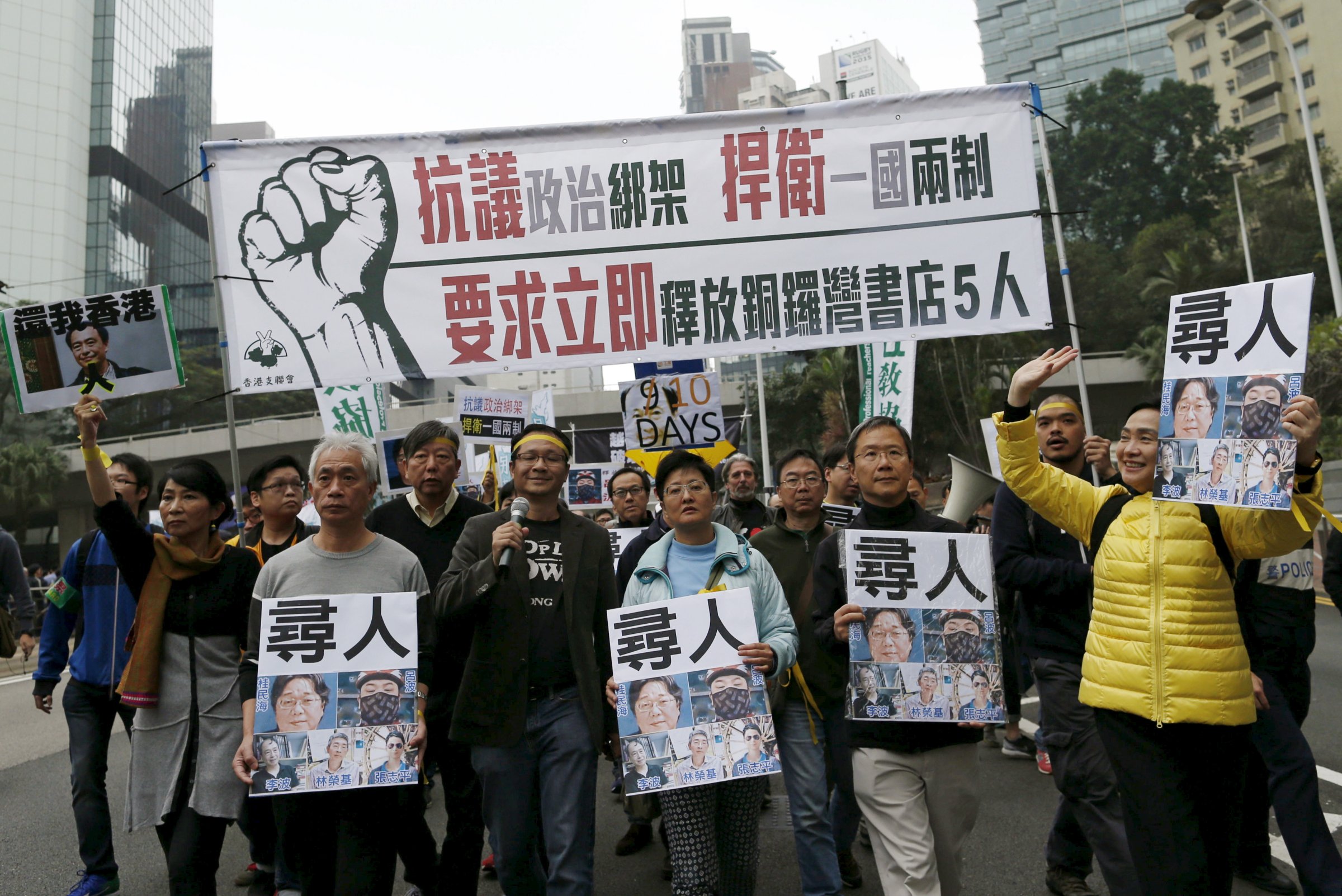
Two Hong Kong booksellers who disappeared last autumn returned to the territory over the weekend after months in the custody of mainland Chinese officials.
Lui Por and Cheung Chi-ping are among the five affiliates of Mighty Current Media — a Hong Kong publishing house that specializes in tawdry texts about the supposed private exploits of Chinese communist officials — who went missing in the last months of 2015. Four of the five detained employees, including Lui and Cheung, have appeared on Chinese television to say that they had been detained for selling thousands of illegal books in the mainland.
“The mainland legal system is built around an inquisitorial system — a system of confessions,” Michael Davis, an expert in Hong Kong and Chinese law at the University of Hong Kong, told TIME on Monday. “There’s severe pressure on defendants to confess. Their trial procedures don’t meet international standards — it’s a rights violation.”
On Friday, Hong Kong police released a statement confirming that Lui had returned to the territory and that he had requested they terminate the investigation into his disappearance; a virtually identical notification came on Sunday upon Cheung’s return. Authorities offered no further comment, but past reports suggest the two men may have been let out on bail.
Meanwhile, two Mighty Current executives remain across the border: co-founder Gui Minhai, who disappeared from a Thai beach town in October and appears to be the focal point of the mainland’s investigation, and publisher Lee Bo, who went missing from Hong Kong the day before New Year’s Eve. When he resurfaced in Shenzhen days later, many openly suspected that he had been abducted from the territory by mainland agents. In a curious twist, Lee gave an interview on Chinese television last week to say that he was aiding the investigation of his own volition, and that he was “free and safe.” He blamed the sale of illegal books on Gui, and also said that he would be surrendering the British nationality that he holds jointly with Chinese citizenship.
“When someone shows up on television giving this interview, there’s so much lurking behind it that it’s hard for anyone to accept it at face value,” Davis said of Lee’s interview. “If [mainland authorities] really want to convince us that he’s doing this voluntarily, then let him come back to Hong Kong.”
The publishers’ case has flamed anxieties in Hong Kong about the extent and nature of Beijing’s assumed authority over the Special Administrative Region — a former British colony that was supposed to enjoy legal autonomy when it was returned to Chinese sovereignty in 1997.
More Must-Reads from TIME
- Where Trump 2.0 Will Differ From 1.0
- How Elon Musk Became a Kingmaker
- The Power—And Limits—of Peer Support
- The 100 Must-Read Books of 2024
- Column: If Optimism Feels Ridiculous Now, Try Hope
- The Future of Climate Action Is Trade Policy
- FX’s Say Nothing Is the Must-Watch Political Thriller of 2024
- Merle Bombardieri Is Helping People Make the Baby Decision
Contact us at letters@time.com